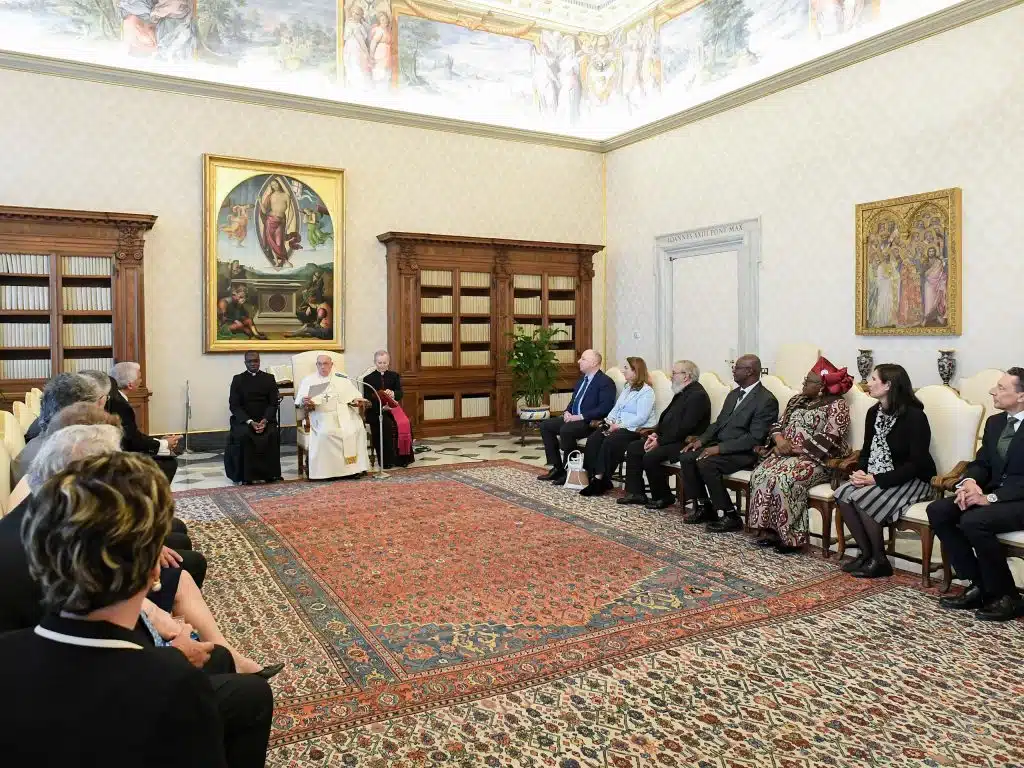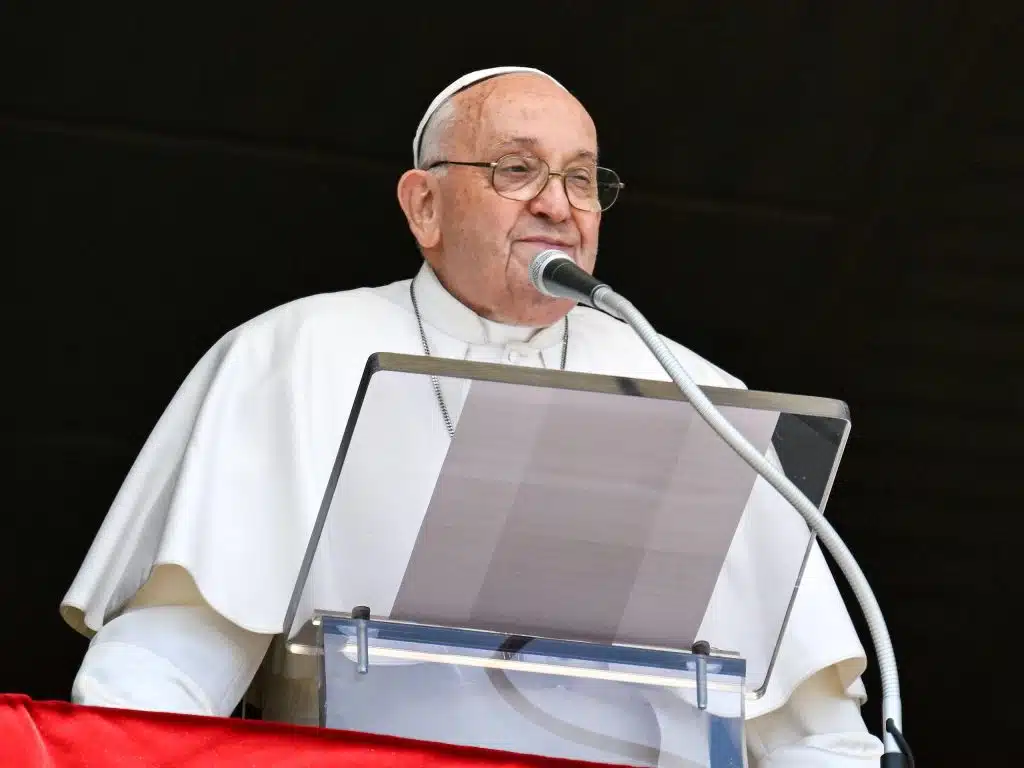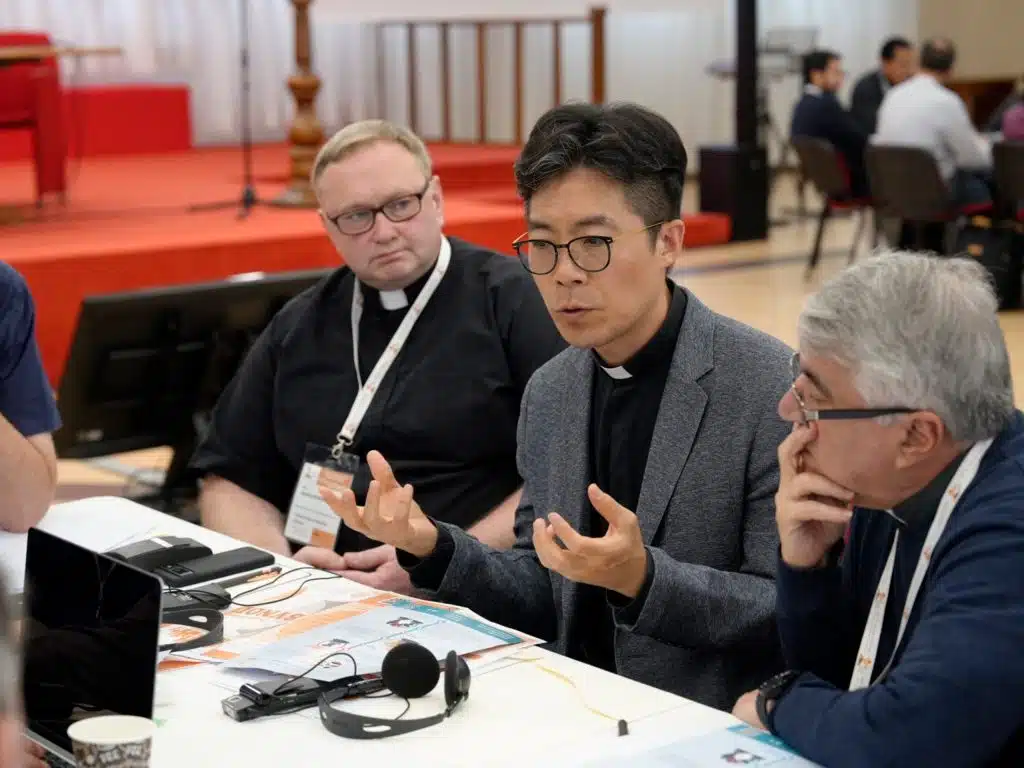VATICAN CITY – The challenges of being human and of living in a world that does not always want to hear about faith do not lessen the obligation to proclaim the Gospel and to call the baptized to live their faith more fully, said Cardinal Donald W. Wuerl of Washington.
“We already know our difficulties, the tensions, our restlessness, our faults and our human weakness,” Cardinal Wuerl told members of the Synod of Bishops on the new evangelization Oct. 17.
Nevertheless, God calls members of the church to proclaim salvation in Christ to the ends of the earth and to re-propose the Gospel “to those who are now distant from the church,” said the cardinal, who was serving as the synod’s relator.
Summarizing – in Latin – the speeches Pope Benedict XVI and synod members gave Oct. 7-17, the Washington cardinal also formulated more than a dozen questions participants might want to discuss in their small groups before drafting propositions to present to the pope.
The “two great pillars of evangelization” must be a commitment to know and proclaim the truth of Christ and to do so with love, he said.
In the more than 230 speeches delivered at the synod, Cardinal Wuerl said, members agreed that the duty to proclaim the Gospel “is not just the responsibility of clergy and religious.” Laypeople share the obligation as well, so the church must prepare them, educate them and support them, he said.
The cardinal asked members to consider in their small groups concrete ways to increase people’s awareness of their responsibility.
“It is the task of the individual Catholic to invite people back to the practice of the faith,” he said.
The family and the parish deserve special recognition and special support, because they are the places where most people first encounter the faith and where they most grow in faith, he said.
Cardinal Wuerl asked members to consider ways the church could devise a program of catechesis that is “basic, complete and inspiring in the search for truth, goodness and beauty” and suggested the small groups discuss the idea advanced by several synod members of formally establishing the ministry of catechist in the church.
Attacks on the family and increasing secularization around the globe mean the church may have to re-evaluate its normal way of proceeding, he said. The situation is even more complicated for Catholics living in countries where they are a tiny minority or where they face limits on their freedom to exercise the faith.
Many of the synod speeches, he said, emphasized the treasure and the role of the liturgy and the sacraments in attracting people to the faith and in sharing God’s grace with them.
Recognizing that evangelization is bringing people to a relationship with Christ through his church, and not simply signing people up as members, Cardinal Wuerl asked, “How can the church better create spaces and moments for an encounter with Christ, and better foster a spiritual renewal, conversion and faith formation among all the baptized?”
Like many synod members did in their speeches, the cardinal also emphasized the evangelizing power of the church’s social outreach to the sick and the poor, an outreach that makes the church “the very presence of Christ in the world today.”
Cardinal Wuerl encouraged the synod members to reflect on “the family, faith formation, religious freedom, care for the poor and the role of the laity” as they continue their work.


